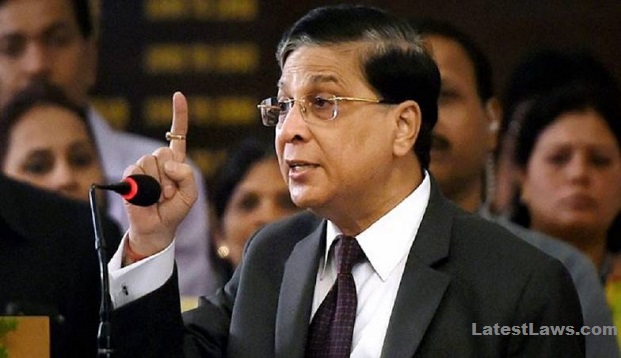September 25, 2018:
Chief Justice of India Dipak Misra, who will retire on October 2, is expected to hear several important cases before biding bye. He is also likely to pronounce important judgments during his last week beginning on September 24.
Some of the key cases are
Aadhaar Law
On May 10, after a long hearing that lasted for 38 days, the first bench reserved verdict on the constitutional validity of Aadhar law. This is one of the longest hearings in the annals of the Supreme Court after the famous Keshavanand Bharathi case. The petitions were originally filed challenging collection of biometrics under the Aadhar project. Meanwhile, the Aadhaar Act was passed by the Parliament in March 2016. Thereupon, petitions were filed challenging the provisions of the Act, and also the mode of passing the Act by the Parliament by treating it as a money bill.
Sabarimala women entry case:
This case threw up significant Constitutional issues regarding the scope of State interference in religious matters under the garb of reform, and the rights of believers to preserve traditions.
While dwelling on the validity of the ban on entry of menstruating women in Sabarimala temple between the age of 10 and 50, the Court will have to address several complex issues like whether the ban is protected under right to religious practise under Article 25 or it amounts to gender-based discrimination prohibited under Article 14 & 15. It was also argued that the ban amounted to practise of untouchability.
Validity of Adultery law
The case challenging validity of Section 497 IPC raises issues of gender equality and right to personal dignity and privacy. The exemption of women from punishment for adultery was characterised as a patriarchal baggage, which treats women as 'chattel' having no agency. Further, the section also exempted sexual act with the wife of another man, if it was performed with the consent or connivance of that man. This was challenged as an affront to personal dignity.
Ayodhya case
A three-judges' bench presided by CJI Misra reserved orders on the plea to refer to larger bench the 1994 SC judgment holding that offering namaz at mosque was not an integral part of Islam. Senior advocate pressed the plea for reference. Rajeev Dhavan, appearing for the Sunni Waqf Board. He argued that the appeal from 2010 Allahabad High Court judgment dividing the disputed site into three parts could be heard only after the main issue is decided.
Court to protect rights of activists
The CJI bench will deliver an important verdict which will change the criminal jurisprudence in this country, viz a person unconnected with a criminal case can move the court and seek the release on bail of others, contending that human rights were violated in the arrest of certain individuals. The court will have to draw a line between dissent and freedom of speech to incite violence.
Live streaming of court proceedings
The court is also considering allowing live streaming of court proceedings. On August 24, the bench reserved orders on this plea, to evolve the modalities for implementation of live streaming and video recording of court proceedings. The Attorney General K K Venugopal suggested that live streaming might be done on an experimental basis for important matters in the Chief Justice's court and assured that the government will provide necessary infrastructure to facilitate live streaming.
Female Genital Mutilation
Soon after the court declared as unconstitutional the triple talaq, it will decide the legal validity of Female Genital Mutilation being practised by the Dawoodi Bohra community. While the Centre supported the ban, the Bohra community justified the FGM on the ground that it is a religious practice in vogue for over 1,000 years and should not be interfered with.
Supreme Court is all set for a hectic week with these hearings and likely judgments on the anvil.
Source:Deccan Chronicle
Picture Source :

























